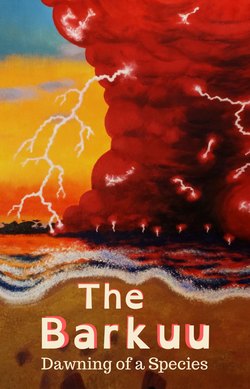Читать книгу The Barkuu - Lauren Wright - Страница 10
На сайте Литреса книга снята с продажи.
Chapter 6: Two Months to Impact January 2046
ОглавлениеIn the two months before the Cloud, the world experienced lawlessness. When the Cloud was first discovered on the twenty-fifth Annual StarTalk Radio Cruise, on a course through the Atlantic. It had become the single most studied phenomenon to date.
Within weeks of the discovery, scientists had realized this Cloud was directly in Earth's path. Not long after that, they realized the Cloud would encompass the planet.
Every eye available was studying it, amateurs and institutions alike. Every instrument that could be trained upwards was manned twenty-four/seven. Our most advanced systems were dedicated to analyzing the massive data blocks.
In the end, with billions observing, and as many instruments as we could muster, we could only tell you the following inexplicable details:
-The Cloud is large enough to encompass the earth entirely.
-The Cloud's orbital pattern is almost exactly that of the earth.
-In two months, the Cloud's orbital path is due to intersect our own, for one day.
-Composition of the Cloud is yet unknown, save some scarce gasses like helium and hydrogen.
-Specialists have identified over two thousand objects varying in size from three meters to several hundred.
-We do not know if these objects will burn up in the atmosphere.
Hypotheses filled the waves across all sources of media. Scientists of all walks offered their opinions on the vast destruction that could ensue.
"If the gas interacts with the atmosphere, you could have chain reactions that engulf the planet in flames. The objects wouldn't even matter then," Dr. Jensen stated.
"But they still do," said the Reporter. "Well, of course, I'm saying it's a possibility is all. In such a case, the objects could also burn up."
"Tell us, Dr. Jensen, is there any chance they'll burn up before they impact the earth?" The Reporter looked to Scientist to hand-off the conversation.
"We believe the smaller of the objects will most likely burn up in the atmosphere, yes."
"We are hoping for starbursts on some of the medium-sized ones. It won't be fun, but maybe we can avoid cataclysm. As for the larger ones, we are really hoping." It was a grim realization at the empty attempt at humor.
The Reporter seemed unamused, and a pause ensued. "Well, what do you think will happen if they do not, Doctor?"
The Scientist took a breath. "If they hit land mass, there would be intense shock-waves to the surrounding area. And then massive dust clouds that block out the sun."
The Reporter replied, "If enough of them occur, it could fill the atmosphere for long enough to choke out most life. But people could dig, yes?" The desperation was evident in the Reporter. Digging-in was everyone's hope.
"Well, yes, but there's more," replied the Scientist. "Should the impacts disrupt the tectonic plates, you could see cascading volcanic activity. Islands would be obliterated, and half of the world would be set ablaze. The eruptions all over the world would spew copious amounts of toxic ash and carbon dioxide into the atmosphere. This would overwhelm our fragile atmosphere and extinguish most life."
"Anything green would die, and be burned to ash," Dr. Jensen said. "Any remaining animals would keep to underground homes, eating grubs and insects to survive. Should they crash down in the oceans, they would create great tidal waves hundreds of feet high, traveling several hundred miles an hour. Think... massive brick wall, sweeping across the land."
Dr. Jensen continued, "If the object is large enough, it could vaporize the surrounding oceans. The resulting cascade would wipe out all life on Earth."
"You, Doctor, are a fountain of good news," the Reporter said with a serious look.
"Humorous bunch, we are," Dr. Jensen replied. "Maybe we could put together an act. We'd do well in England." Someone coughed in the background, uncanny timing, Jensen thought to himself.
"Any last bits of advice?" The Reporter asked.
"Yes, get as far inland as you can, and away from faults. Dig deep, deep as you can and bury anything you want to preserve. There is a chance the damage will be small. But we cannot predict with any great certainty what will happen. So it's best to prepare for the worst." A few seconds drifted by. "Well, the worst we can survive, anyway."
